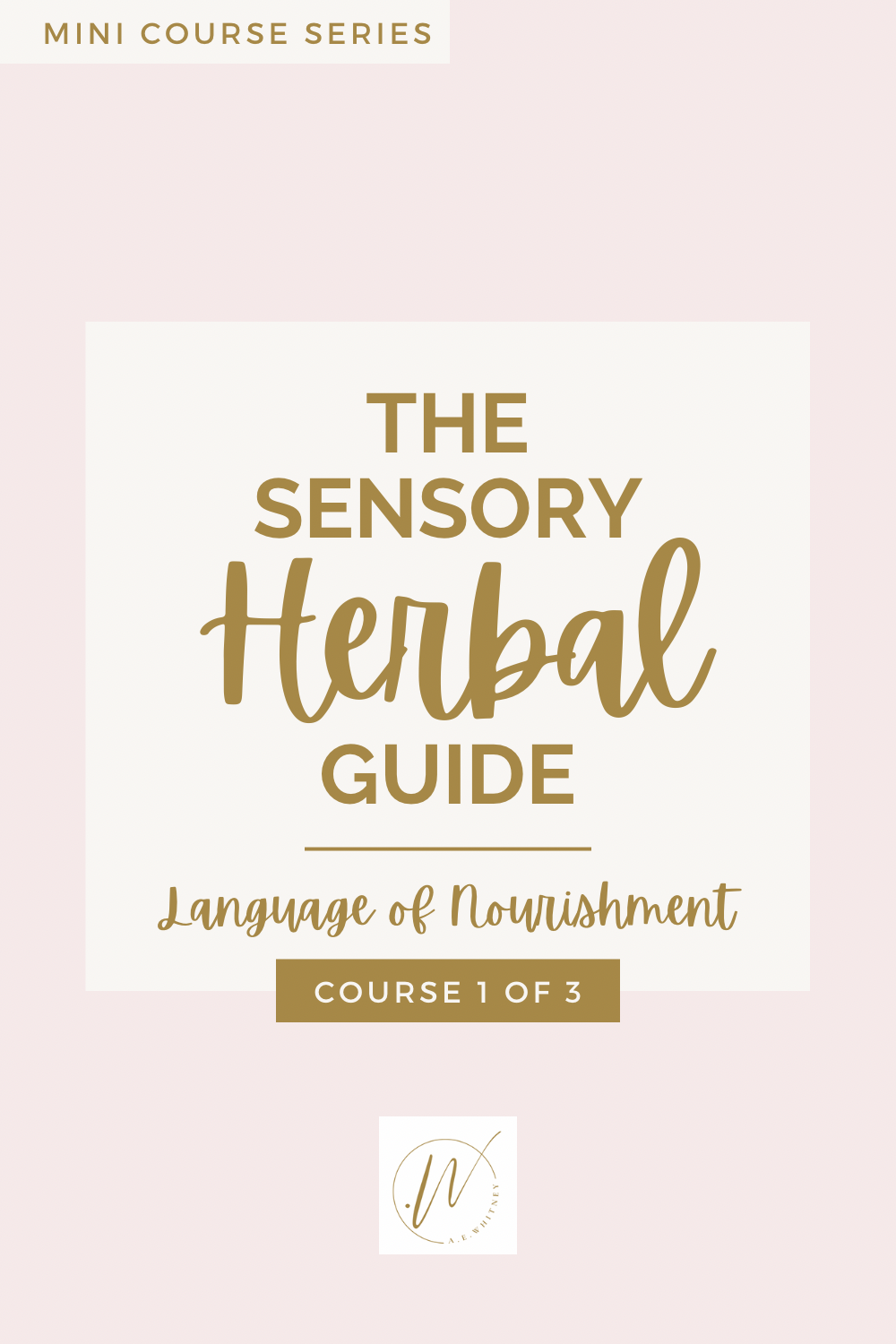A mini guide for listening and responding to your body’s language through the chemistry of herbs.
Your nervous system speaks in chemistry.
Herbs speak it too.
This guide helps you listen, respond, and regulate — one sip, scent, or sprinkle at a time.
This isn’t about potions, trends, or placebo.
It’s about sensory cues, body literacy, and using herbs as everyday signals of safety.
Think of this as a quiet conversation between your body and the plant world.
You don’t need to “believe” in herbs.
Your body already does.
Nervous System Self-Care = Chemistry + Sensory + Repetition
Herbs aren’t magic — they’re messages.
Each one carries compounds that tell your body something:
- “You’re safe now.”
- “You can rest.”
- “Here’s more clarity.”
- “Let’s ease the gut and slow the breath.”
Use this guide to explore how scent, taste, and daily use can help you:
• Reset your stress response
• Train your body to recognize safety
• Create anchors of calm — anytime, anywhere
Meet Your Nervous System Allies: The Herbs
Mint
Benefit: Cooling, clarifying, digestive ease
Why it works: Menthol
Basil
Benefit: Uplifting + grounding
Why it works: Linalool
Chamomile
Benefit: Gentle calm, sleep support
Why it works: Apigenin
Rosemary
Benefit: Mental clarity, alertness
Why it works: Cineole, carnosic acid
Thyme
Benefit: Breath, tension, immunity
Why it works: Thymol
Oregano
Benefit: Gut + mood support
Why it works: Carvacrol
Sage
Benefit: Grounding, memory, mental reset
Why it works: Rosmarinic acid
Turmeric
Benefit: Anti-inflammatory calm
Why it works: Curcumin
Try This:
Choose one herb. Smell or sip it. Then ask:
- How does my body respond — not just mentally, but physically?
- Is there a shift in breath, mood, or energy?
Mini Practice: The 5-Minute Herbal Reset
When you feel dysregulated, scattered, or tense — try this:
- Boil water
- Pick one herb intuitively
- Inhale the scent as it steeps — 3 slow breaths
- Sip slowly
- Ask:
- What shifted?
- What softened or opened?
- What do I feel now?
✅ Checkpoint:
Do you feel more here?
More grounded, clear, or soothed?
Make Your Kitchen a Nervous System Apothecary
No tinctures needed — just your spice rack.
Herbs in food = microdoses of support, day after day.
Try this kitchen magic (without the woo):
Mint
Use: Water, smoothies
Effect: Clarity, cool-down
Basil
Use: Toast, pasta, eggs
Effect: Grounded uplift
Rosemary
Use: Roasted veggies
Effect: Focus, mental energy
Thyme
Use: Broth, soups
Effect: Breath, ease
Oregano
Use: Beans, sauces
Effect: Gut + immune calm
Sage
Use: Oils, dressings
Effect: Focus, emotional steadiness
Reflection Prompt:
Pick 3 herbs. For each one, ask:
- When will I use it (morning, meal, bedtime)?
- What effect am I seeking (calm, clarity, energy)?
- How will I prepare it (tea, seasoning, oil)?
Sensory Anchors: Train Safety Through Smell
Smell is one of the fastest ways to shift your nervous system.
Scent Practice: “Smell & Notice”
- Choose 3 herbs (dried or fresh)
- Inhale each slowly
- Ask:
- Does it energize, calm, ground, soothe?
- What memory or mood arises?
Build Your Subconscious Anchor
Repeat the same scent + same calming activity (like sipping tea or deep breathing) daily.
Over time, the smell alone becomes a signal of safety.
Tea as a Nervous System Ritual
One of the simplest, most effective tools for calming your body?
Herbal tea.
It works through heat, scent, taste, and rhythm.
Choose your tea based on how you feel:
Chamomile
When: Evening
Why: Softens anxiety, supports sleep
Peppermint
When: Morning
Why: Clears mind, aids digestion
Lemon Balm
When: Midday or night
Why: Mood support, gentle calm
Lavender
When: Night
Why: Releases tension (use lightly)
Tulsi (Holy Basil)
When: Anytime
Why: Balances stress, grounding
Rose
When: Evening
Why: Heart-softening, emotional calm
Mini Practice: Sip → Pause → Feel
- Choose a tea based on how you feel
- Sip slowly — let it touch your senses
- Ask: What’s shifting? What does my body need next?
Optional: Keep a Tea Journal
- Herb used
- Time of day
- Feeling before / after
Bonus: 5 Hidden Allies in Your Spice Rack
Cardamom
Use: Tea, baking
Effect: Grounding, eases digestive tension
Fennel
Use: Roasted dishes, teas
Effect: Gut calm, emotional ease
Coriander
Use: Curries, teas
Effect: Mental clarity, gut reset
Cinnamon
Use: Oats, tea, snacks
Effect: Warming, emotional steadiness
Bay Leaf
Use: Broths, soups
Effect: Quiet focus, subtle calm
Try This:
Pick one herb you already use.
Ask: What nervous system gift is hiding here?
Final Reflection: Slow Healing is Real Healing
You don’t need a dramatic overhaul.
You need repetition, familiarity, and tiny resets.
Herbs aren’t dramatic.
They’re dependable.
Let them remind you:
- You can feel safe now
- You can reset without effort
- You already speak this language — your body knows
✅ Final Check-In:
- What’s one small herbal habit you want to keep?
- How can you make it part of your daily nervous system care — no pressure, just presence?
What’s Next?
Continue Your Journey:
[→ Nourish Your Nervous System with Everyday Foods]
A practical guide to using meals and snacks to support steady energy, clear focus, and blood sugar balance.
⚠️ Please Note: This content is for educational purposes only and should not be used as a substitute for therapy, medical advice, or legal support.


